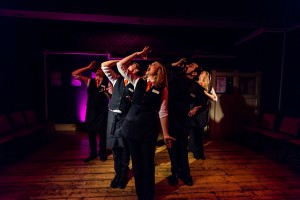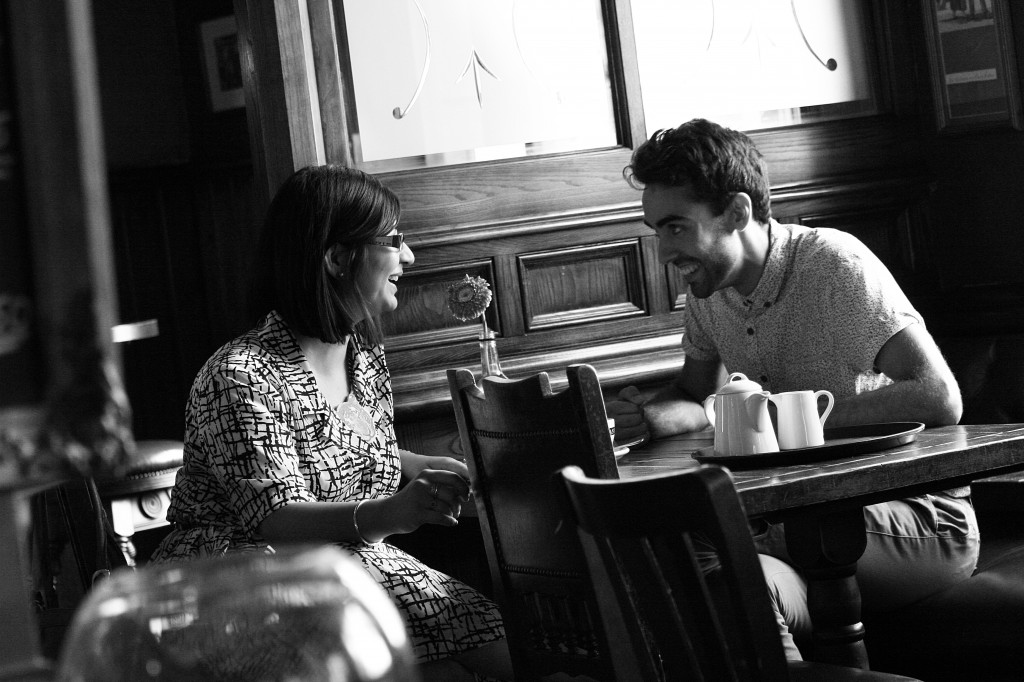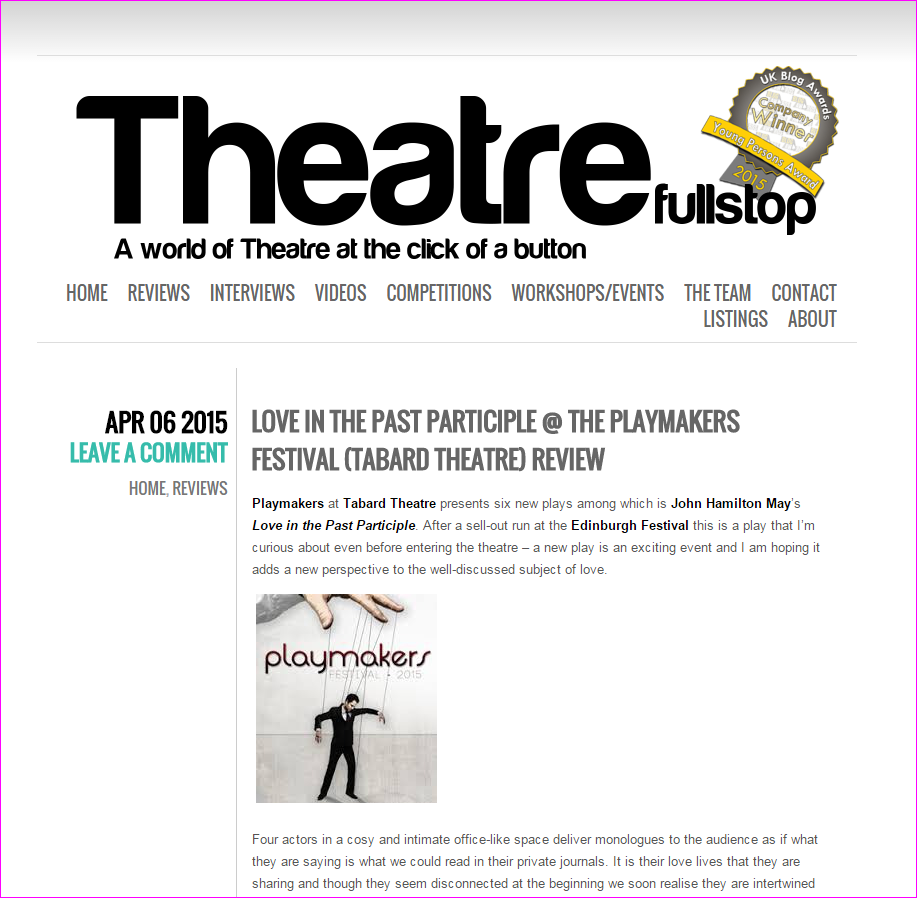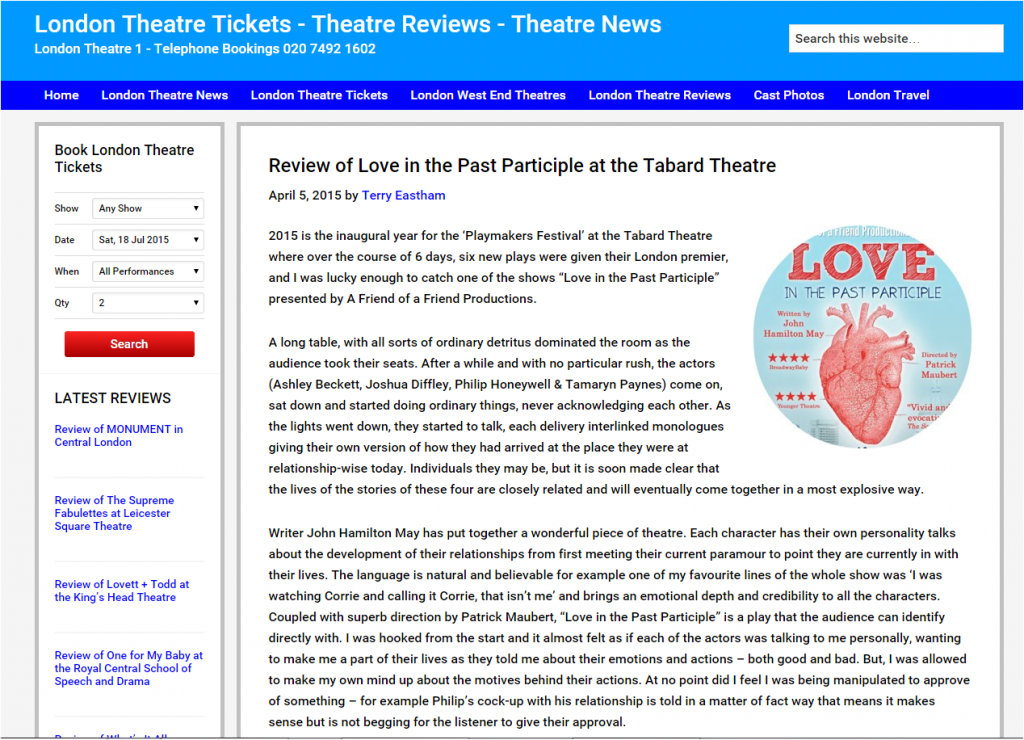The down time of Summer 2015 has granted us here at AFOAF HQ with an opportunity to look ourtward and experience theatre without the pressure of looming production deadlines. As supporters and aficionados of new work, we have watched, and indeed taken part in, a wide variety of performances this year, ranging from the small and intimate, to the grand scale epics. We’ve seen everything from Kinky Boots at the Adelphi Theatre and McQueen at Theatre Royal Haymarket, to The Generation of Z, the immersive post apocalyptic zombie experience at a dingy warehouse in East London, to Secret Cinema’s The Empire Strikes Back, short play festivals at Waterloo’s Vaults and the Lost Theatre, and comedy gems like Flick and Julie: Pop Up Penny Pinchers at Leicester Square Theatre. We even ventured into Russian theatre with Pavel Pryazhko’s flirtatious and fruity The Harvest, as translated by Sasha Dugdale for Soho Theatre.
The point is, we’ve had a busy summer. A busy, inspiring and invigorating summer. We’ve cheered on writers and actors from our previous productions and celebrated their successes with every curtain call.
So what have we learnt?
2015 has seen a fascinating climate for the Arts. New Musical theatre continues to struggle and excel in a teetering balance (we’re talking the likes of Made in Dagenham vs. Sunny Afternoon) whilst the success of new plays has raised the new battleground of gender imbalance (the summer has been generously dusted with articles quetioning this theme, find a few of them here) . Theatreland can be a fickle place, and for every boundary that is breached, a new horizon is sought out. Site specific and immersive theatre companies have been creeping to the forefront of the public eye in the last few years, with Punchdrunk’s incredible The Drowned Man and Secret Cinema’s Shawshank Redemption serving to permanently alter how audiences interact with the art form. Expectations have been raised, and the minds have been opened. The possibilities are limitless; in Ushers, the front of house staff sell you programmes, show you to your seats, and then burst into song, seamlessly blending reality and crushing the fourth wall. Last year, The Jetty in Greenwich hosted Shunt’s surreal The Boy Who Climbed Out of His Face and returned this summer with Heartbreak Hotel, a show that continued the trend of luring audiences away from the safety of a proscenium setting, begging the question, “If audiences are comfortable with being taken out of their comfort zones, then what’s next?”
When Theatre Delicatessen and diferencEngine invited groups of eight to pull off a Heist, the result was a sell-out run and an outcry for more tickets. When You Me Bum Bum Train confirmed their return to London, the frantic demand for tickets crashed the servers, proving that audiences don’t even feel the need for ‘safety in numbers’ and are keen to literally dive into the unknown and go it alone.
As 2015 draws to a close, we continue to wonder what the next big thing will be. In what direction will the boundaries be pushed in 2016?
We might have had a glimpse of this courtesy of The Showstoppers, who are two weeks into their run of The Improvised Musical at the Apollo Theatre on Shaftesbury Avenue. Now that audiences have acclimatised to becoming a part of the cast, the next frontier seems to be the “Choose Your Own Adventure” of theatre, where we cease to be participants but instead blur the lines between creator and spectator. Delirious with power, the audience is captivated by the undeniably talented cast. And best yet, for two hours straight, not one person feels the need to play on their phone and check their social network feeds (an achievement that should not be taken lightly, as even Cumberbatch will agree).
We’re eager to know what you think, what’s the next big thing in theatre?








